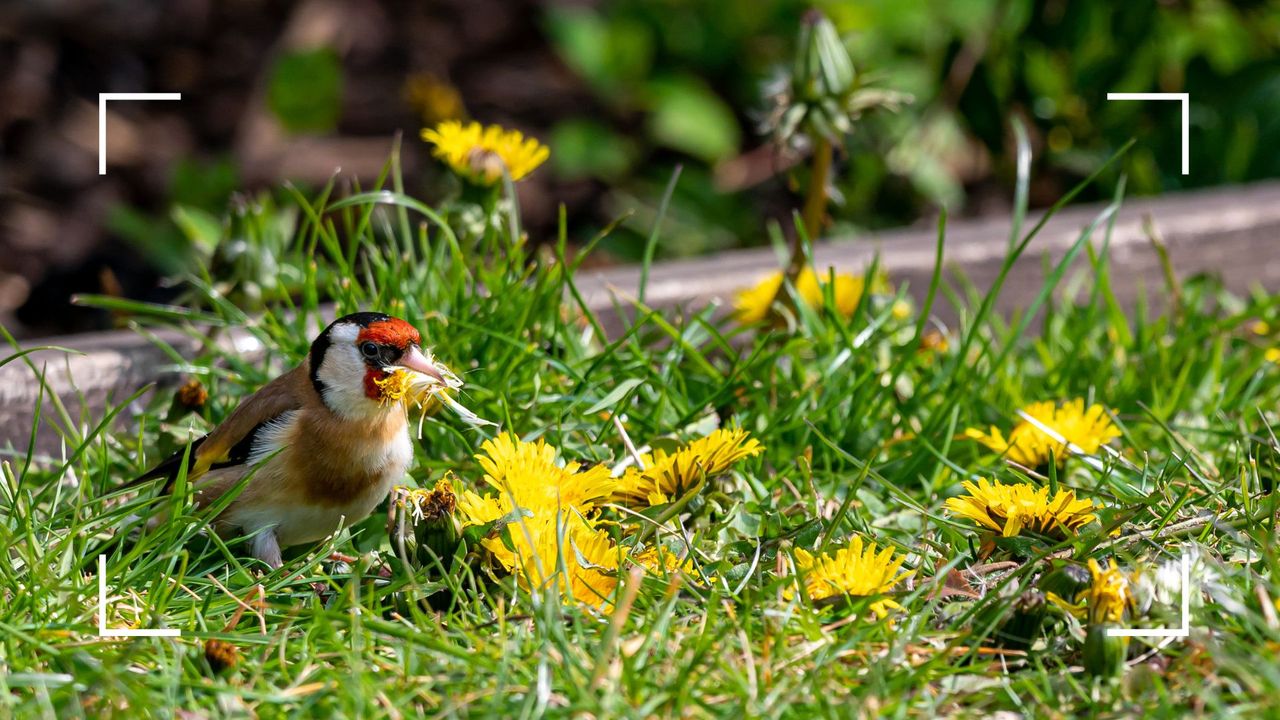
With the warmer weather on its way out, you'll probably be gearing up to get your garden ready for the winter months. Before you weed and cut back, you may want to keep these plants around.
Getting rid of weeds is probably one of the first jobs on your list when sorting the garden out. And while they can be an eyesore, there are actually several benefits to keeping them around, especially if you're looking to encourage more wildlife into your garden.
If you're happy to adopt the rewilding trend and welcome more critters into your garden, here are the five common weeds you should let grow.
5 wildlife-friendly weeds you should spare this season
Whether you want to try out sustainable garden ideas or are hoping to attract more birds to your garden, weeds are a natural, low-effort way to do it.
You might have to wave goodbye to having a manicured garden, but the wildlife will thank you for it.
1. Dandelions
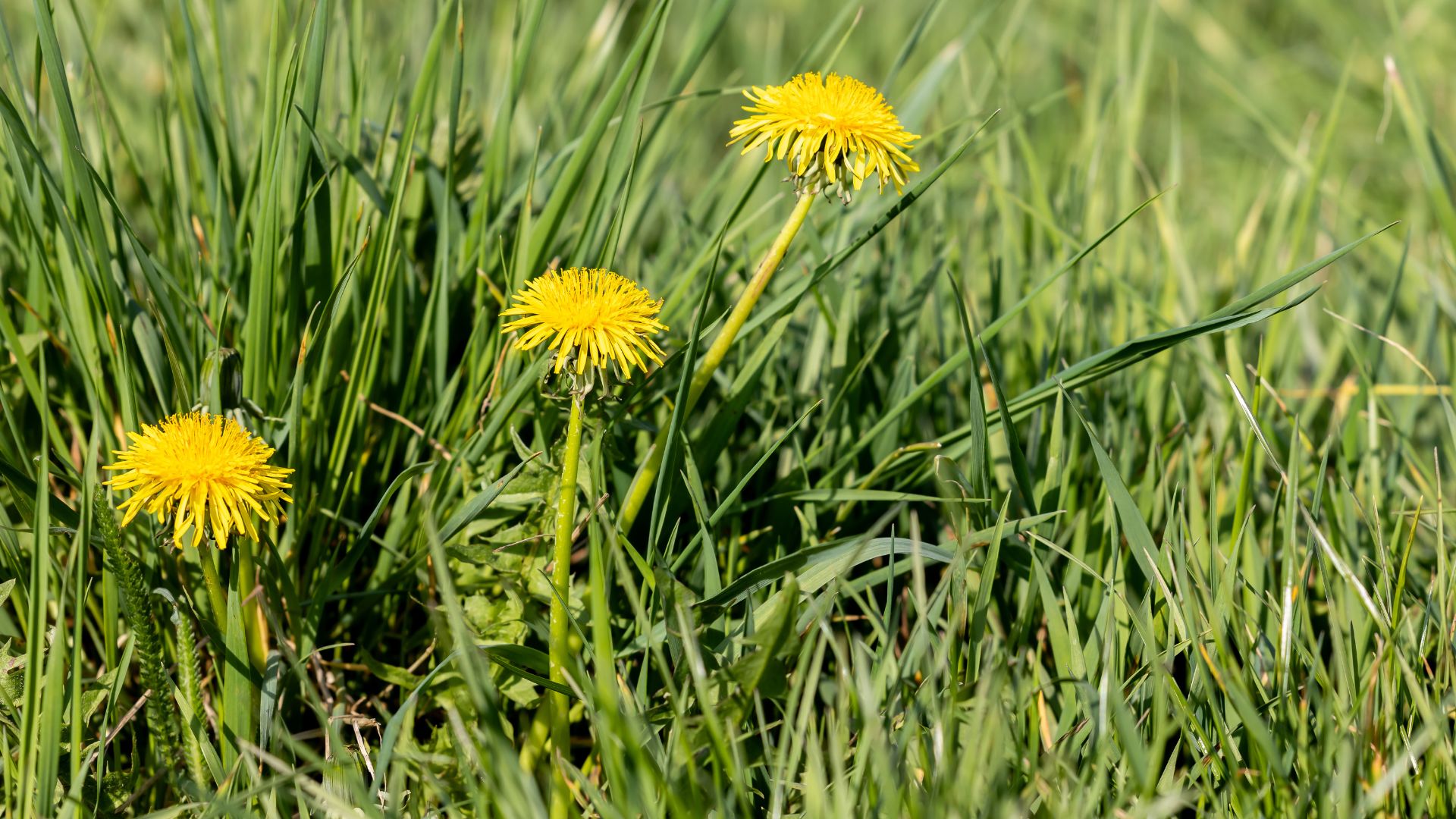
Dandelions are often the weeds that grow in your lawn, making them hard to remove without damaging your grass. And while they may not look the best, they're great for birds.
"While dandelions are best known for providing early spring nectar, they’re still useful later in the year. Their fluffy seed heads are a valuable food source for birds such as goldfinches and sparrows. Leaving a few to go to seed in autumn can help sustain wildlife as natural food sources begin to dwindle," explains Chris Bonnett, Founder of GardeningExpress.co.uk.
So if you're ever worried about what you can and cannot feed wildlife, why not leave them this all-natural snack?
2. Nettles
Nettles aren't probably what you have in mind when picturing the meadowscaping trend, but surprisingly, they are much-loved by wildlife.
"Nettles support butterflies like the red admiral and small tortoiseshell. When temperatures start to drop, nettle patches also provide shelter for insects preparing to overwinter," explains Chris.
So if you want to attract butterflies to your garden, leaving some nettles in safe spots is a great idea.
3. Thistles
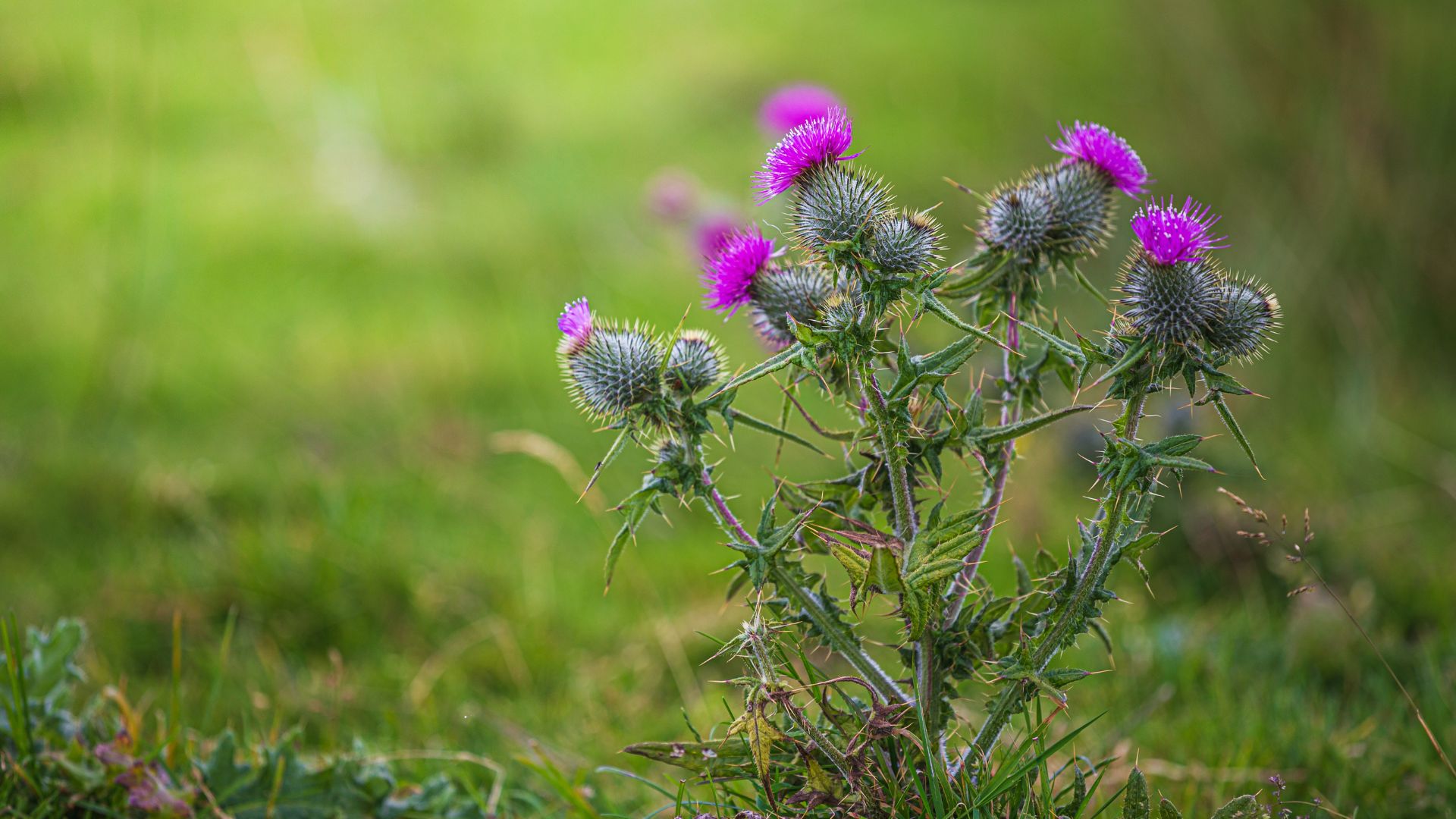
Unlike sea holly, which is one of the best rockery plants, thistles are a little more on the spikey side, but they're great plants for pollinators.
"Thistles also support a range of pollinators earlier in the season. As their flowering season comes to an end and their seed heads are ripening, they also offer a feast for flocks of goldfinches and other birds," explains Chris.
4. Broadleaf plantain
If you're ready to really diversify the wildlife in your garden, then this weed is a great way to do it. "This common, hardy weed thrives in borders and paving cracks. Its broad leaves provide food for small mammals like rabbits, as well as insects such as bees, hoverflies and certain caterpillars," points out Chris.
"The dense rosettes also offer shelter for insects and other small creatures, making it a valuable plant for biodiversity," he adds.
5. Dock
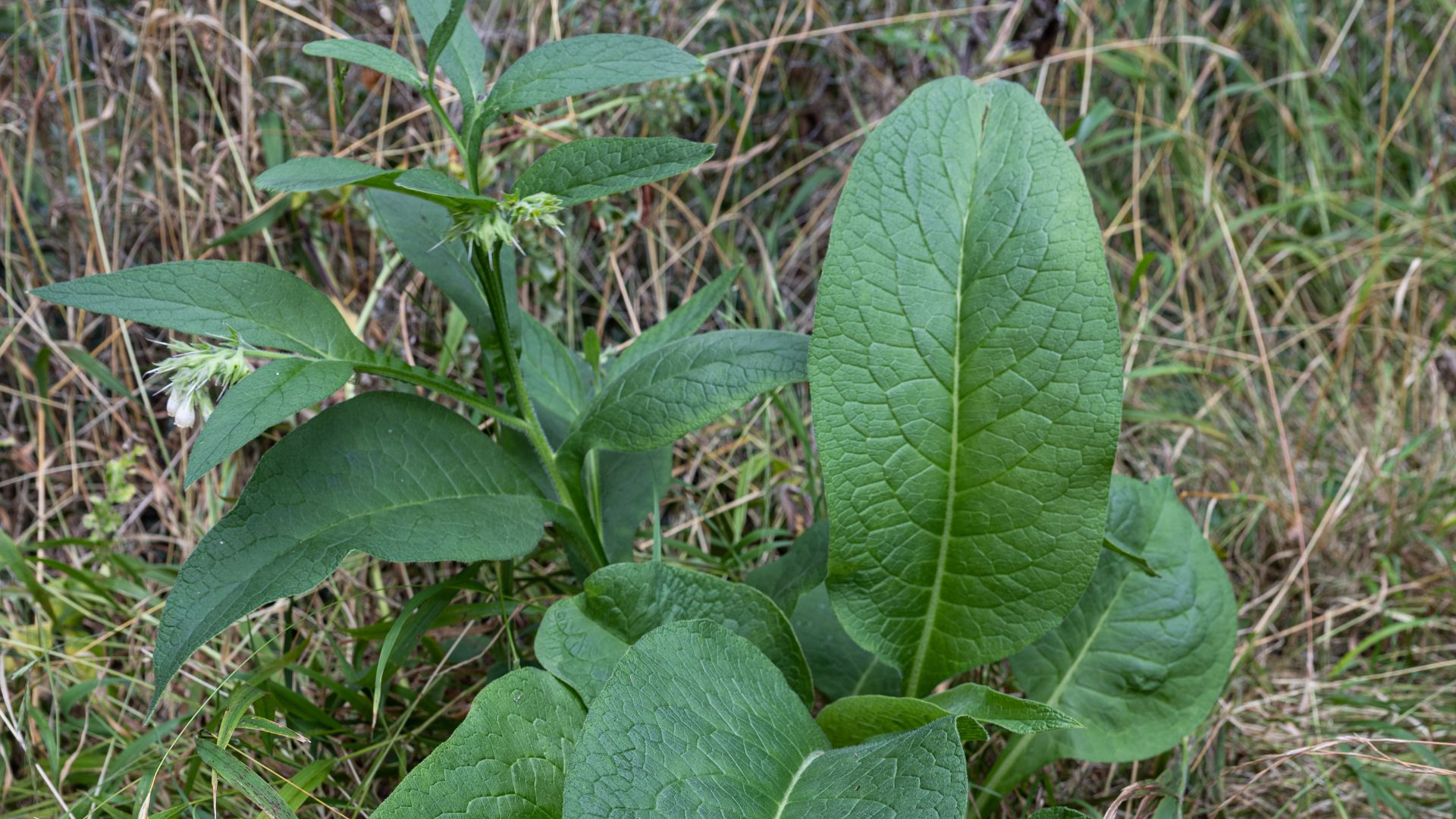
"Dock’s large, broad leaves create sheltered microhabitats, and their leaves are a vital food source for the larvae of insects like the green dock beetle. In late summer and early autumn, its seeds provide a reliable food source for seed-eating birds," says Chris.
Although you may not love the idea of creepy crawlies living in your garden, they help build your space's ecosystem, which in turn improves the health of your plants.
If you still want to keep your garden neat, why not adopt the mosaic garden trend? It's the best of both worlds.
Shop wildlife food alternatives
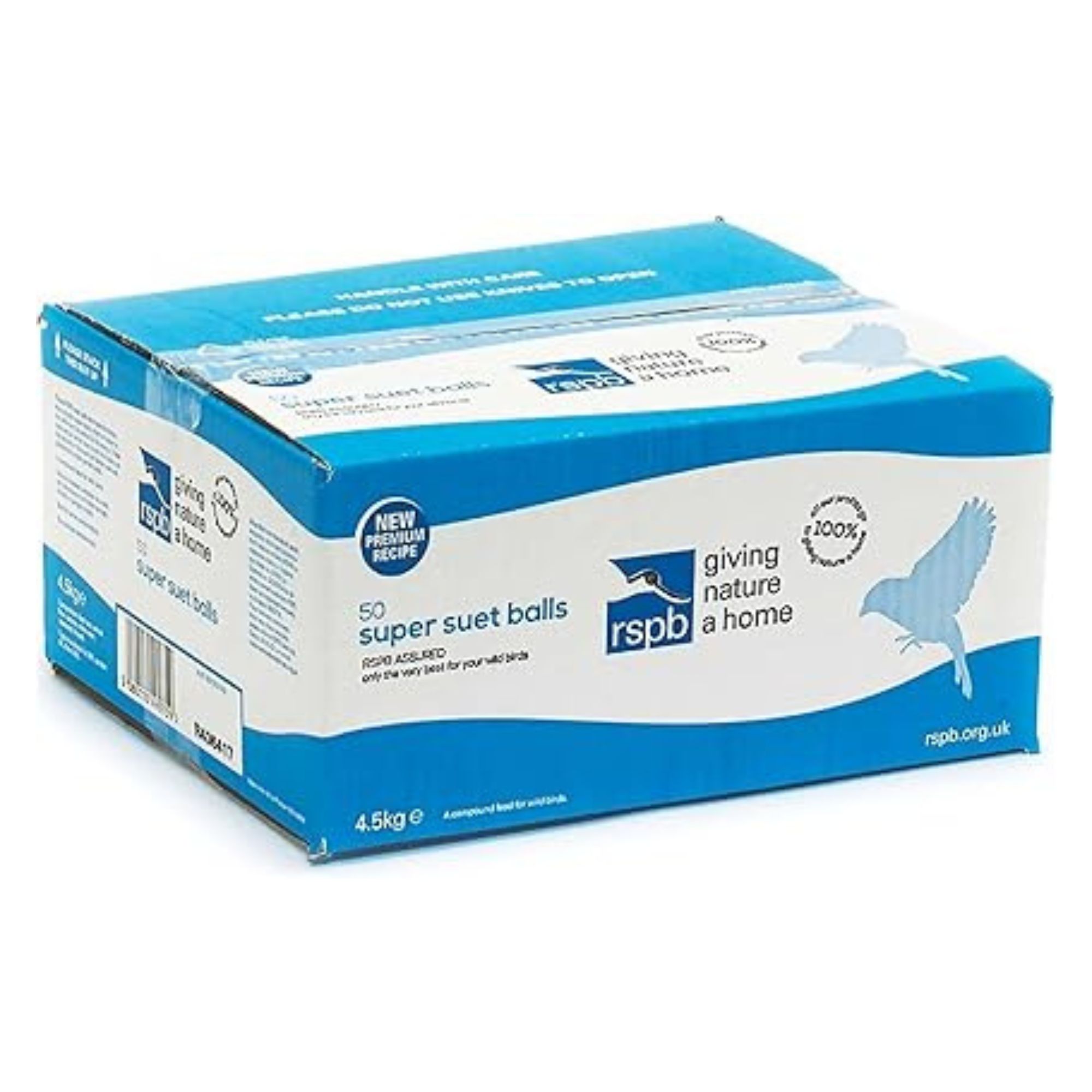
RRP: £15 | This pack of 50 fat balls provides brilliant energy-rich treats for all birds with a nutritious blend of suet, wheat flour, peanut flour, millet seed, rapeseed and linseed.
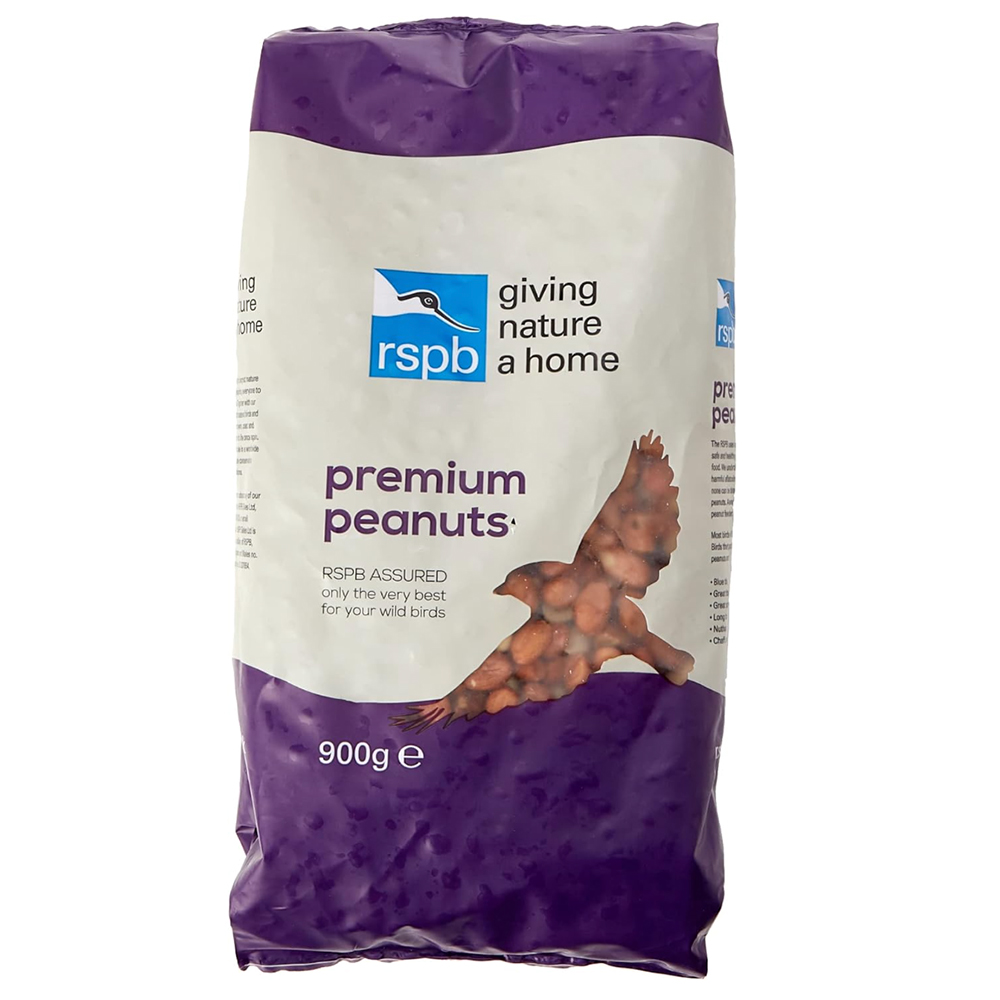
RRP: £5.50 | The best way to feed birds peanuts is to use a trusted source that doesn't contain any salt - such as these best-selling RSPB premium peanuts.
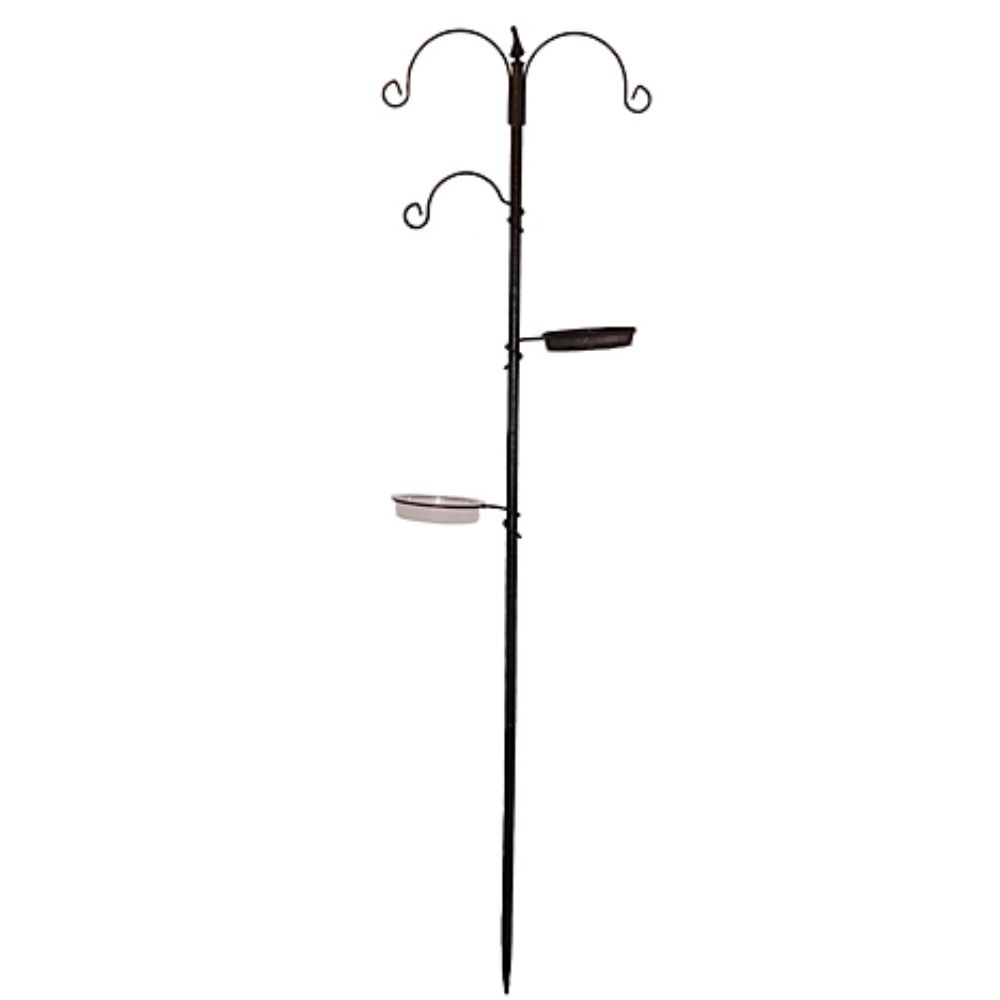
RRP: £14.85 | This bird feeder will not only keep foxes from stealing bird feed, but the slippery thin pole will also deter those pesky squirrels too. It comes with three hooks and two water baths for local birds to enjoy.
In the end, it's about keeping your garden how you want it, but still allowing space for wildlife to thrive. "You don’t have to let your garden become overrun, but if you’ve got space, leaving a patch of weeds to grow can make a huge difference to the biodiversity in your garden," finishes Chris.







